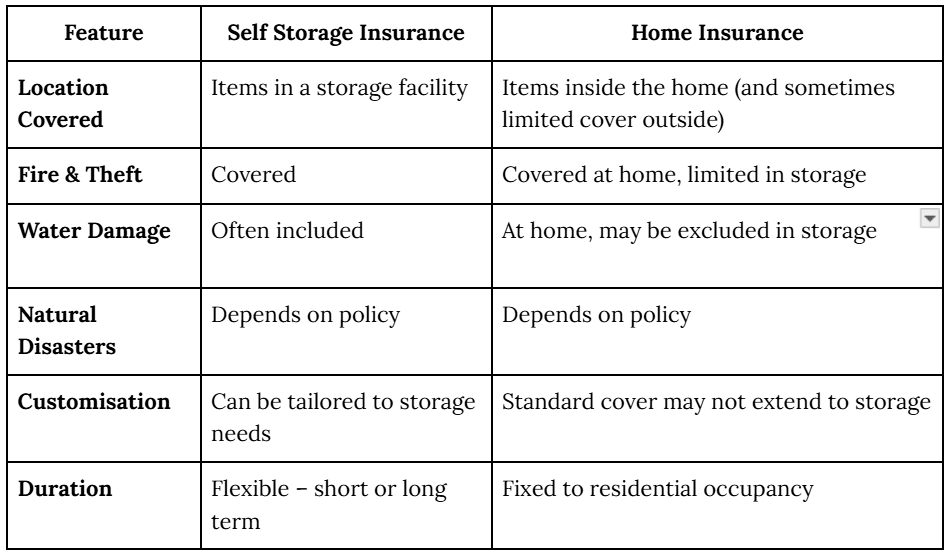.png)
When it comes to protecting your valuable belongings, insurance is non-negotiable. But here’s a common question many people face: Does home insurance cover items in self storage? Or do you need separate coverage like self storage insurance?
Understanding the difference between self storage insurance and home insurance is critical especially when your personal items are stored away from home. In this blog, we’ll break down the coverage differences, what’s included, what’s excluded, and why having the right insurance matters.
Whether you're downsizing, relocating, or simply need extra space, this guide will help you protect what matters most.
Self storage insurance is a specialised policy designed to protect your belongings while they are stored in a storage facility. Unlike home insurance, which is focused on your primary residence, this type of policy specifically covers items kept in a secure, off-site storage unit.
It typically covers:
Reputable providers like SSIA offer self storage insurance that is tailored for individuals and businesses using storage units across Australia.

Traditional home insurance (including contents insurance) usually protects your belongings while they are kept within your home. It may include limited cover for items temporarily stored outside the home, but this is often subject to strict conditions.
In most cases, home insurance will not fully cover items stored in a storage unit, unless specific clauses or add-ons are included in your policy.
Limitations might include:

Many people assume their home insurance will extend to a storage unit, but this assumption can lead to major disappointment when damage or theft occurs.
Even if your home policy offers some protection, it may not:
With self storage insurance, you're getting protection specifically designed for the environment and risks of storage facilities.
.png)
Every policy differs slightly, but here are common inclusions:
Protect your belongings in case someone breaks into the unit.
Covers damage caused by fire outbreaks within or near the storage facility.
Depending on your insurer, this may include damage from storms, hail, or floods.
If someone intentionally damages your stored goods, you're covered.
For example, if a nearby pipe bursts and damages your stored items.
As with any insurance, there are exclusions. These often include:
Always read the Product Disclosure Statement (PDS) to understand exactly what is and isn’t covered under your self storage insurance policy.
You should consider self storage insurance if you are:
Even if your storage unit is in a secure, CCTV-monitored facility, risks like fire, storm damage, and water leaks can still occur and they’re outside your control.
While home insurance is essential for protecting the contents of your house, it may not offer adequate protection for belongings stored elsewhere. That’s where self storage insurance comes in offering peace of mind for when your valuables are out of sight.
Don’t assume you’re covered. If your items are in a storage unit temporarily or long-term, dedicated self storage insurance ensures they’re protected against theft, fire, storm, and more.
